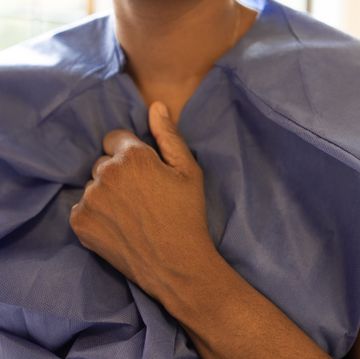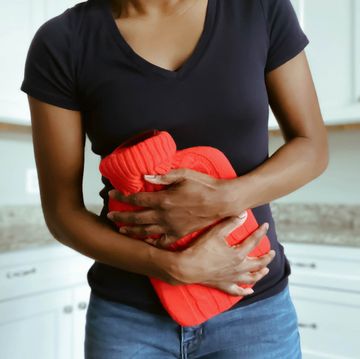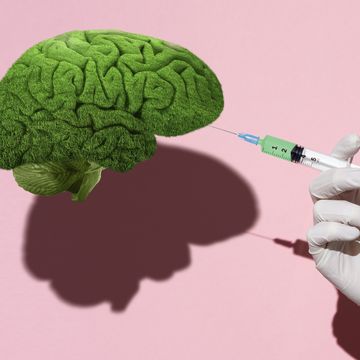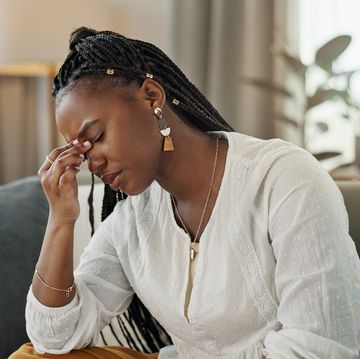- Olympic gold medalist Caster Semenya lost an appeal Wednesday against new rules that regulate the testosterone levels for athletes with a difference in sex development.
- Semenya has hyperandrogenism, which means she has elevated levels of testosterone in her body.
- Fans have expressed their disappointment in the ruling by pointing to the fact that men rarely see the same treatment in sports.
- Doctors explain what hyperandrogenism is, how it impacts athletic performance, and what kind of medication is needed to lower testosterone levels.
Caster Semenya, a South African middle-distance runner and 2016 Olympic gold medalist, lost an appeal Wednesday against new rules that regulate the testosterone levels for athletes with a difference in sex development. The ruling addresses gender identity, and essentially sets guidelines for what it means to be a female athlete.
Semenya, 28, is hyperandrogenous, which means she has elevated levels of testosterone in her body. The Court of Arbitration for Sport (CAS) ruled that the South African middle distance runner will need to take medication to lower her testosterone levels if she wants to compete internationally, CNN reports.
Semenya was challenging a new policy by the International Association of Athletics Federations (IAAF) that goes into effect on May 8. That policy requires that all athletes with a difference in sex development (DSD) would have to reduce their blood testosterone levels to below 5 nmol/L for at least six months, and maintain those levels continuously while they compete, if they want to participate in international middle distance races.
Semenya has posted several inspirational quotes on Twitter since her appeal was denied:
She also released the following statement: “I know that the IAAF’s regulations have always targeted me specifically. For a decade the IAAF has tried to slow me down, but this has actually made me stronger. The decision of the CAS will not hold me back. I will once again rise above and continue to inspire young women and athletes in South Africa and around the world.”
What is hyperandrogenism?
Hyperandrogenism is an endocrine disorder that affects women who are of reproductive age. “It’s more common than most people realize,” says women’s health expert Jennifer Wider, MD. About five to 10 percent of women in this group have hyperandrogenism. The condition is often linked with polycystic ovary syndrome (PCOS), a hormonal disorder that causes small cysts to form on a woman’s ovaries, Dr. Wider says.
Hyperandrogenism causes elevated levels of the sex hormone testosterone in a woman’s body, and that can lead to acne, increased muscle mass, deepening of the voice, hair loss from the scalp, abnormal hair growth, mood swings, and infertility, Dr. Wider says.
Can hyperandrogenism impact a person’s athletic performance?
“It definitely can,” says William Malarkey, MD, professor emeritus of internal medicine at The Ohio State University Wexner Medical Center. “Testosterone gives you more endurance, and it also increases muscle mass, power, and strength.” Male athletes also have to have their testosterone levels below a certain level in some sports, like cycling, or they’re thrown out of competition, Dr. Malarkey points out.
“Studies have been conducted to back this up. Muscle mass is affected, which can result in a faster, stronger performance,” Dr. Wider adds.
For instance, in one 2015 study, researchers had a small group of sedentary men and women go through a year of endurance training. At the beginning of the study, the people in both groups had hearts of a similar size. At the end of the year, the men had significantly larger hearts, likely due to testosterone’s affects on muscle-building, the researchers noted.
What kind of medication is used to treat hyperandrogenism?
There are different ways to treat the condition, but oral birth control pills are one of the most common, Dr. Malarkey says. “Birth control pills can lower testosterone levels,” he says.
Side effects of this are largely related to the symptoms of hyperandrogenism, Dr. Malarkey says. Meaning, someone who has the condition and starts taking birth control pills will start to see symptoms like unusual hair growth, a deep voice, acne, and mood swings go away. It just won’t happen overnight. “As you lower the testosterone levels, these things will gradually decrease,” Dr. Malarkey says.
How the CAS ruling opens a conversation on gender and sports
People have expressed their disappointment in the CAS ruling by pointing to the fact that, even though testosterone is linked to a competitive advantage, men rarely see the same treatment.
Many fans took to Twitter to show their support for Semenya, expressing that she has no control over the way she was born, and that natural physical advantage is simply part of being an excellent athlete. Semenya has not said whether she’ll contest the CAS’ ruling, but it’s likely.
“We are naturally very disappointed with the decision. This is not only against human rights but also a blow to all South Africans. We are committed to lobby other athletic bodies to stand behind us,” a spokesperson for The South African Ministry of Sport told CNN. “This wasn’t only Caster Semenya’s case but also Athletics South Africa and we plan to study the report in detail. We plan to appeal this decision.”
Semenya’s lawyers also told the New York Times that “her unique genetic gift should be celebrated, not regulated.”
Stay updated on the latest science-backed health, fitness, and nutrition news by signing up for the Prevention.com newsletter here. For added fun, follow us on Instagram.













